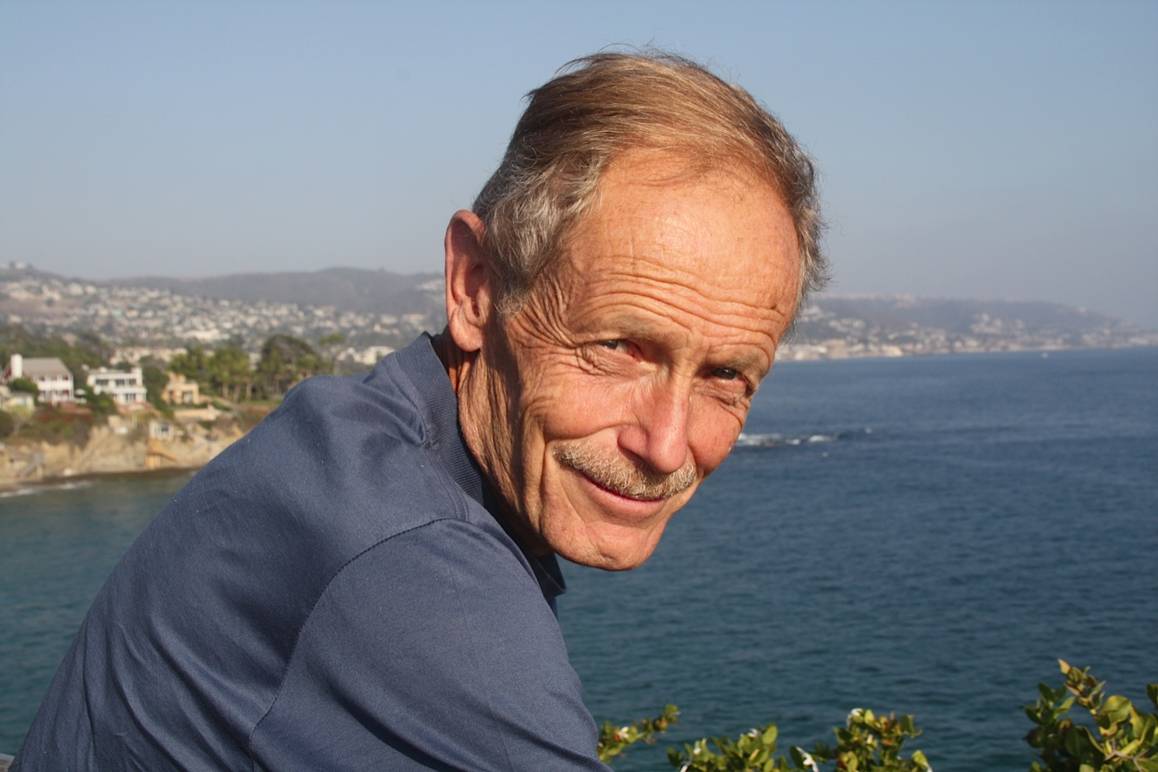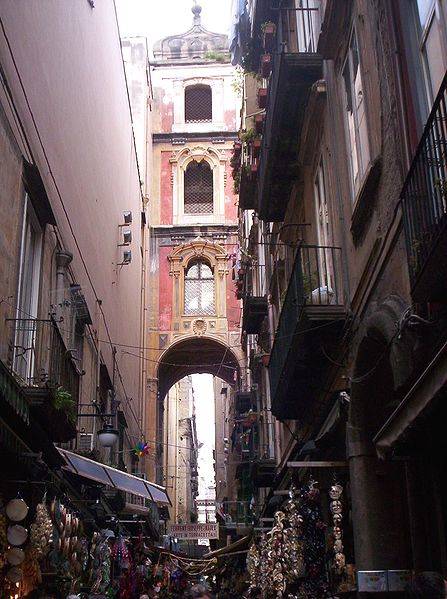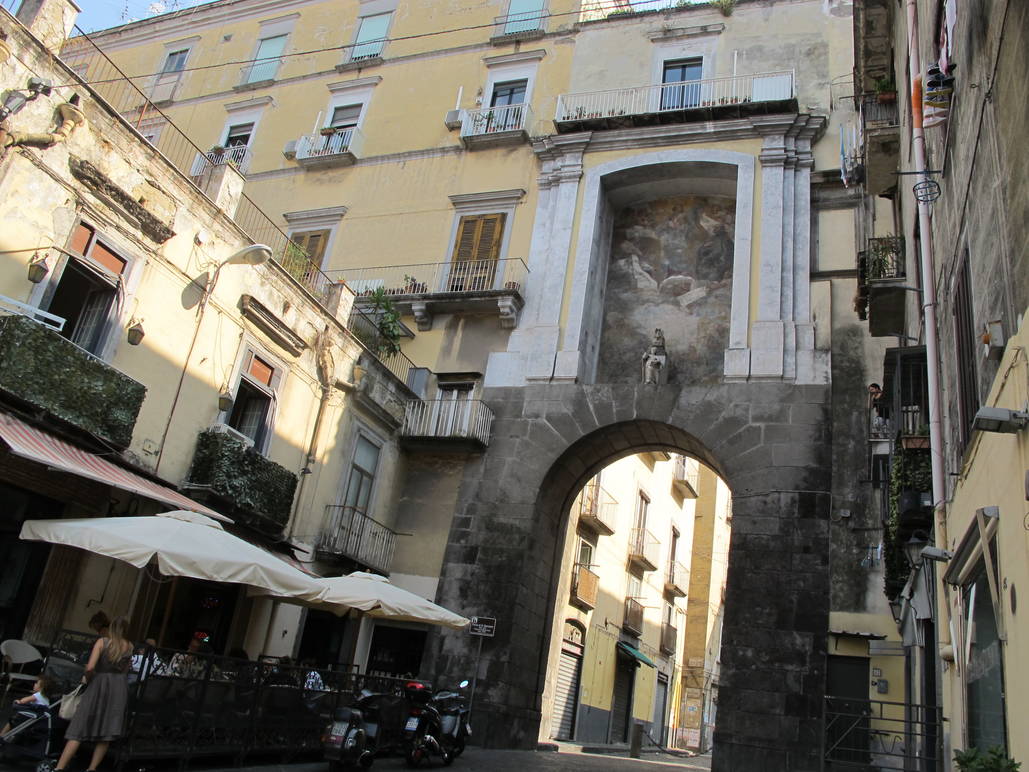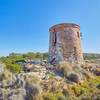Erri De Luca: Naples is the Center of My Entire Nervous System
Poetry lives in his daily life. He has experienced it, especially during the most difficult times. Erri De Luca – writer, translator, poet – is originally from Naples and has lived a very intense life.
He has been a laborer, truck driver, warehouse worker, bricklayer. He has worked in politics and for humanitarian causes. These experiences provided him with important life lessons and have inspired his poetry.
Carrying Naples inside of him, as do many Neapolitans who no longer live there, he lives in contrasts. He left Naples at 18. He returns, physically, every now and then. Even when he is far away, his mind and heart remain there.
“My senses were created in Naples. That place is my center; it’s the center of my nervous system. My nervous system was formed there, as well the education of my emotions. I don’t mean walking arm-in-arm with a young lady. For me, it’s about fundamental feelings of compassion, anger, and even shame. They’re feelings that crop up every time I think of Naples. I hear them inside my head when I react to news coming from the city, every time they call me to comment on some distasteful piece of news from Naples.”
As he describes his childhood, the story emerges of a city to hear as well as see. “I grew up in avery narrow alley. There was not much of a view, but the sounds worked miracles. You could hear everything that was going on beyond the walls and the streets. The city was very acoustic.”
It was an education that took place through listening, especially in dialect. “Voices, cries, prayers, lamentations of my mother. All in Neapolitan.
Italian is my second language. It’s difficult to explain to non-Italians, because in their experience dialects don’t really exist – only the inflections of pronunciations that distinguish one place from another. It’s rarely found outside of Italy, this radical differences in vocabulary and phonetics among our dialects. We come from a country of ‘multiple languages.’ In Naples, we speak one of these languages.”
Leaving Naples.
So what does Erri recall of his departure from Naples? He was young, he left suddenly, and never went back there to live. “I had built up a lot of drive to get out, and the drive at a certain point materialized. I opened the door to my house…and I closed it slowly behind me, not letting it slam. I disappeared. I went down the stairs, I went to the station and I took a train. I separated myself from the future that had been set for me. I immediately threw myself into the fray. I remember precisely the emptiness of the descent; it was a deep void. For me, those stairs were an abyss, and I would never go up them again.”
For Erri De Luca, New York City, America, and Naples are linked by a personal red thread. The United States entered his life even before he visited. His grandmother was Ruby Hammond and she was raised in Birmingham, Alabama. His name, Erri, comes from Harry, even though he dropped the “H.”
“Neapolitan America”
But America didn’t just exist in family stories. He had lived it and seen it while he was still a boy in Naples. “The U.S. Sixth Fleet is headquartered in Naples. There were aircraft carriers and whole squadrons. Entire neighborhoods in Naples were inhabited by American soldiers and officers. America was all around me.”
This “Neapolitan” America joined the America that was already inside him. He looked very much like those young Americans, those soldiers who descended from ships and were seen wandering around Naples while on leave.
“My body resembled theirs. Once I was even taken in by the American police since they had mistaken me for one of their soldiers. Physically, America fit me; it was my calling card. I was an American in Naples. “
At last — New York
But Erri visited New York City for the first time just two years ago, and did so as a famous writer on tour to present his book. We asked him to describe some of feelings upon his first “return” to America.
“I had just read a travelogue written by my father, who had been in New York after the war. He had longed for America and had read a lot of American literature. So I tried to see New York through his eyes, looking for what he had seen him in the 1950s. Of course I made it up; I completely imagined the stories hidden inside of my father’s diary. I followed him as he went to Ellis Island, the terminus of the journey for emigrants, and I went to the top of the Empire State building, again because he had been there….”
A city that is unique
Our conversation seemed to be a relay between Naples and New York. We went back to Naples and asked Erri for some tips to tourists who want to visit. “Naples is not a touristic city in the classic sense. It’s not like Rome or Florence. Naples must be visited alongside a Neapolitan, someone who will take you by the hand, not because you need to be protected but because only a Neapolitan can open up the city to you. Otherwise, you won’t see anything. You need a friend in Naples. It’s a secret city. For however beautiful it is, for as much as it seems completely open with its wonderful bay, it’s actually impenetrable.” Perhaps an intrinsic aspect of this city is its impenetrability and its religiosity.
“It’s a religious city, even superstitious. In particular, there is an intimate worship of the dead, who are never erased or excluded, but continue to be with us. There is great adoration of the relics. Neapolitans have entrusted themselves to the intercession of the patron saint Gennaro who saved them from the plague, the lava from Vesuvius, and earthquakes. The city has its own ‘holiness’ which is neither in heaven nor on earth.”
An earthquake within. As in so many of Erri De Luca’s books, there lives and seethes a tension that feeds his research and transforms it into poetry. In this way, he exorcises the interior earthquake that is so often within us. And he allows something sacred to grow in its place, something which takes us back to Naples, where his senses were constructed.











































i-Italy
Facebook
Google+
This work may not be reproduced, in whole or in part, without prior written permission.
Questo lavoro non può essere riprodotto, in tutto o in parte, senza permesso scritto.